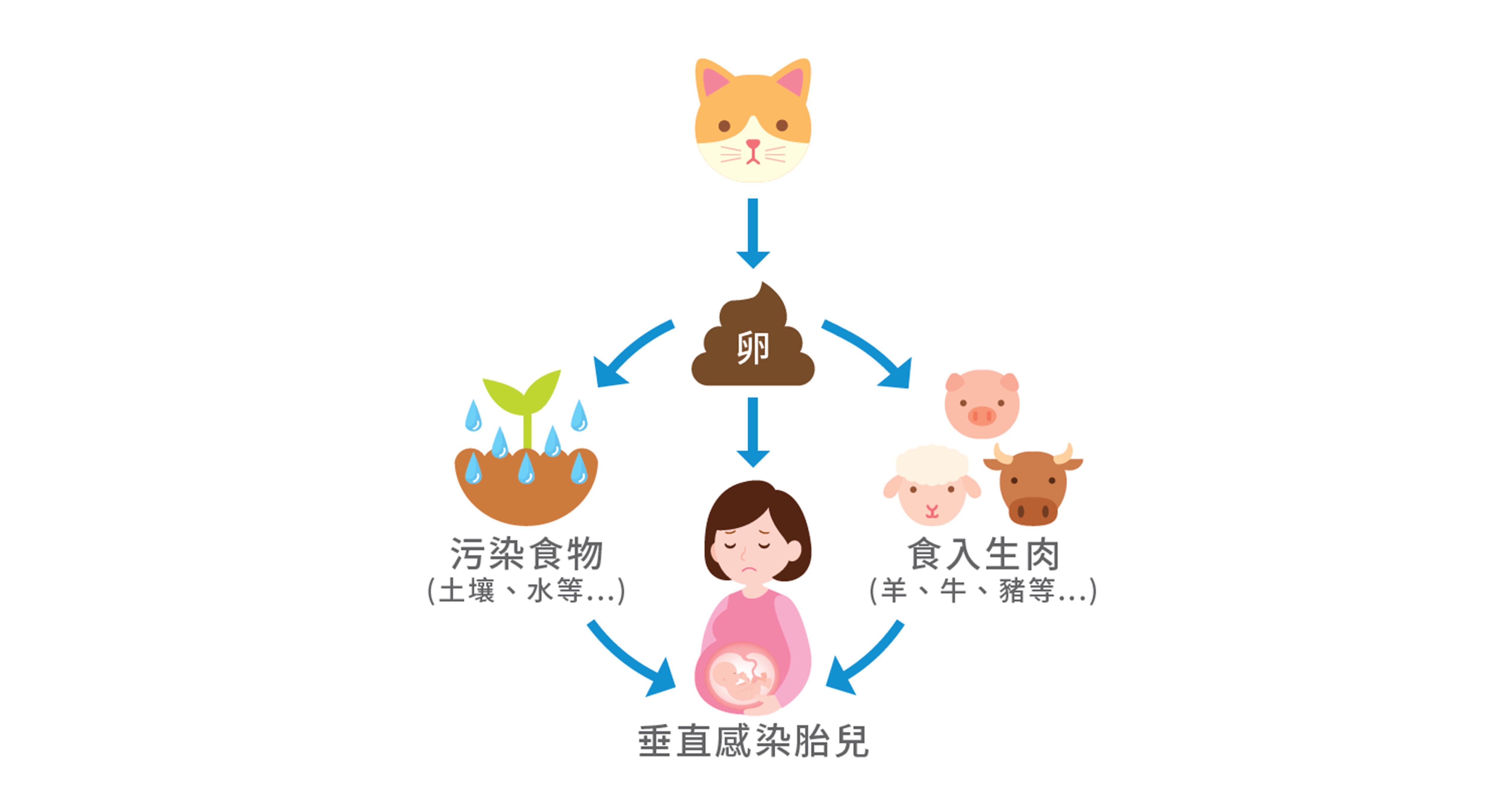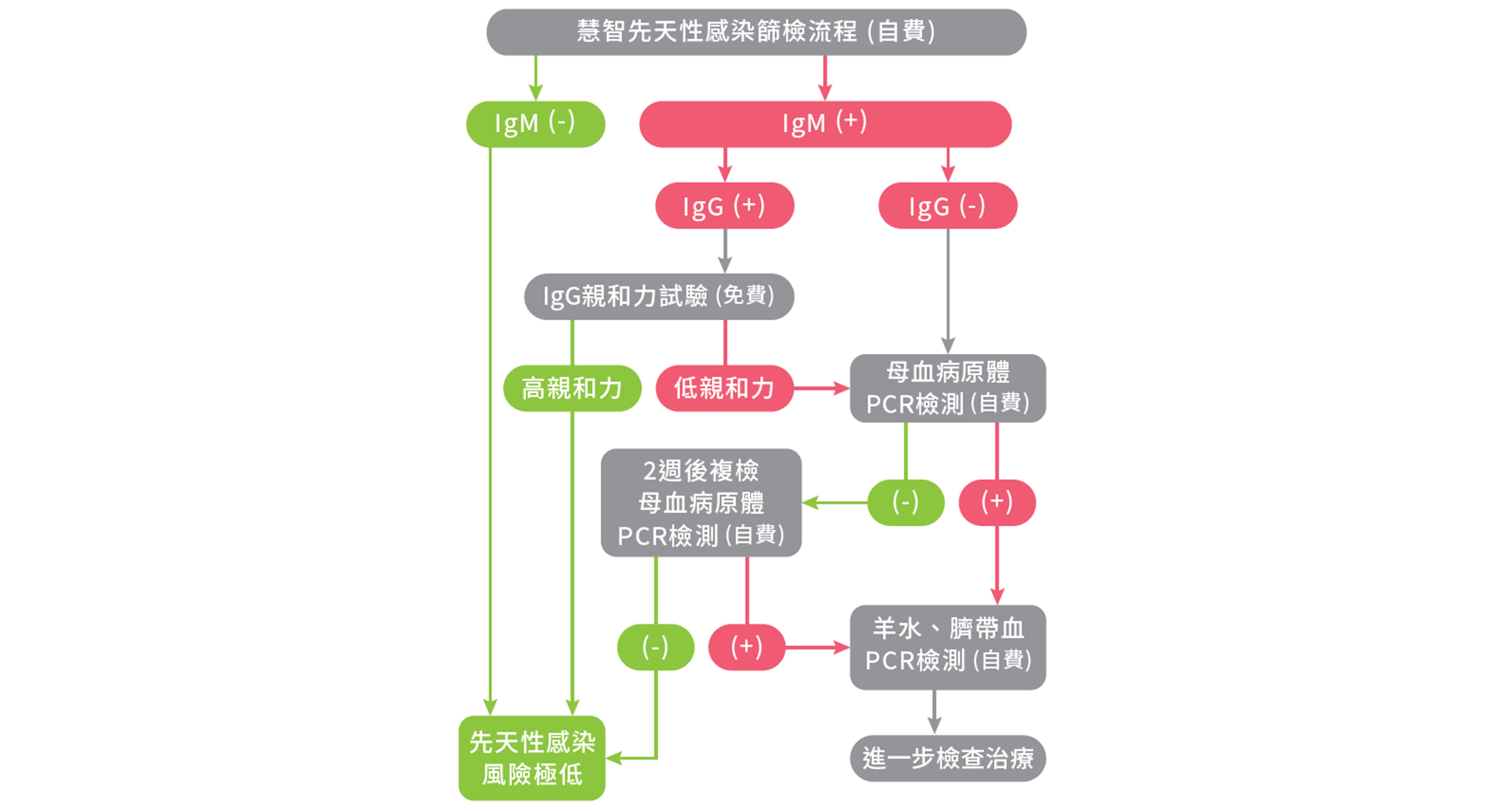先天性感染篩檢 (TORCH)
服務介紹
懷孕期間非細菌性病原體感染,我們通稱為TORCH先天性感染。
病原體可透過母體垂直傳染給胎兒,引發先天性感染,對胎兒造成嚴重的不良後果。
■ TORCH先天性感染
先天性感染又稱TORCH,TORCH一詞由美國學者Nahmias等於1971年提出,專指懷孕期間非細菌性病原體感染。病原體可透過胎盤或產道傳染給胎兒,引發先天性感染,產生畸胎、早產、流產或死胎;此外也可能引發多系統、多器官的損害,如水腦、胎兒過小、羊水過少;由於腦部受損,嬰兒會出現不同程度的智力發育障礙、智商低下,甚至出現精神性躁動造成不同程度的智力障礙症狀。

弓漿蟲感染是由弓漿蟲 (Toxoplasma gondii) 所引起。為一種廣泛人畜共通疾病,主要宿主為恆溫動物。一般人感染症狀與感冒類似,不易察覺。流行病學研究顯示國外約有1/3人口曾感染過,以中美洲、中非及法國的感染率最高;台灣懷孕年齡婦女以血清抗體調查發現感染率大約是10%。
感染途徑
人、豬及牛等家畜皆可能為中間宿主,但貓是弓漿蟲的最終宿主。常見感染方式是吃下未煮熟且含弓漿蟲卵囊的生肉或動物組織;另外,誤食貓糞中卵囊或接觸受污染土壤或水後意外食入也有可能感染;此外,母體垂直傳染給胎兒或輸血、器官移植亦有感染的可能性。
臨床症狀
孕婦若在第一孕期初次受到感染,則可能通過胎盤垂直感染給胎兒,引起多發性系統損害,如水腦、神經受損,不同程度的智力發育障礙,智商低下,甚至出現流產、死胎或畸胎等症狀。

巨細胞病毒是一種無所不在的病毒,無論成人、幼童或胎兒均有可能感染。一旦感染之後,終身停留在體內。據統計美國有40%的成人受感染,約1%的新生兒被感染;在臺灣約有高達70%的孕婦在懷孕前已經被感染過。
感染途徑
主要為體液接觸。從患者或隱性帶原者的體液如唾液、血液或性器官分泌物等接觸後再觸摸眼睛、鼻子、嘴巴就會傳染;共食、性行為、哺乳、輸血和器官移植也會傳染。
臨床症狀
婦女於孕前六個月感染,仍有機會傳染給胎兒;且懷孕初期感染,25%機率傳染給胎兒,其中有20%機率產生嚴重併發症,不得不特別注意。其他症狀如有意識運動障礙、肝脾腫大、耳聾或中樞神經異常等。
檢測說明
以免疫學方法檢測孕婦血液中弓漿蟲或巨細胞病毒之IgM和IgG。
■ 慧智檢測優勢
一般檢驗所,對於先天性感染常見檢測方式為抽取孕婦血液或羊水進行血清免疫之IgM和IgG檢測,但往往陽性的孕婦沒有進一步確認導致無辜的胎兒被引產。
* 說明:慧智基因對於檢測陽性的孕婦,可以提供進一步之孕婦血液、羊水和臍帶血檢測,並且提供完整後續治療諮詢。
適用對象
✔ 孕婦應該在懷孕初期(第一孕期)就進行相關檢查,避免早期感染引發胎兒相關併發症。
✔ 有可能暴露於感染源的婦女。
✔ 高齡、想要進行試管嬰兒的婦女,在尚未懷孕前,應做相關檢查。
✔ 孕前檢查。
檢測流程

其他說明
■ 先天性感染治療方式
先天性感染可透過藥物、免疫球蛋白等方式進行治療,若您檢測為陽性,我們提供完整後續治療諮詢。
